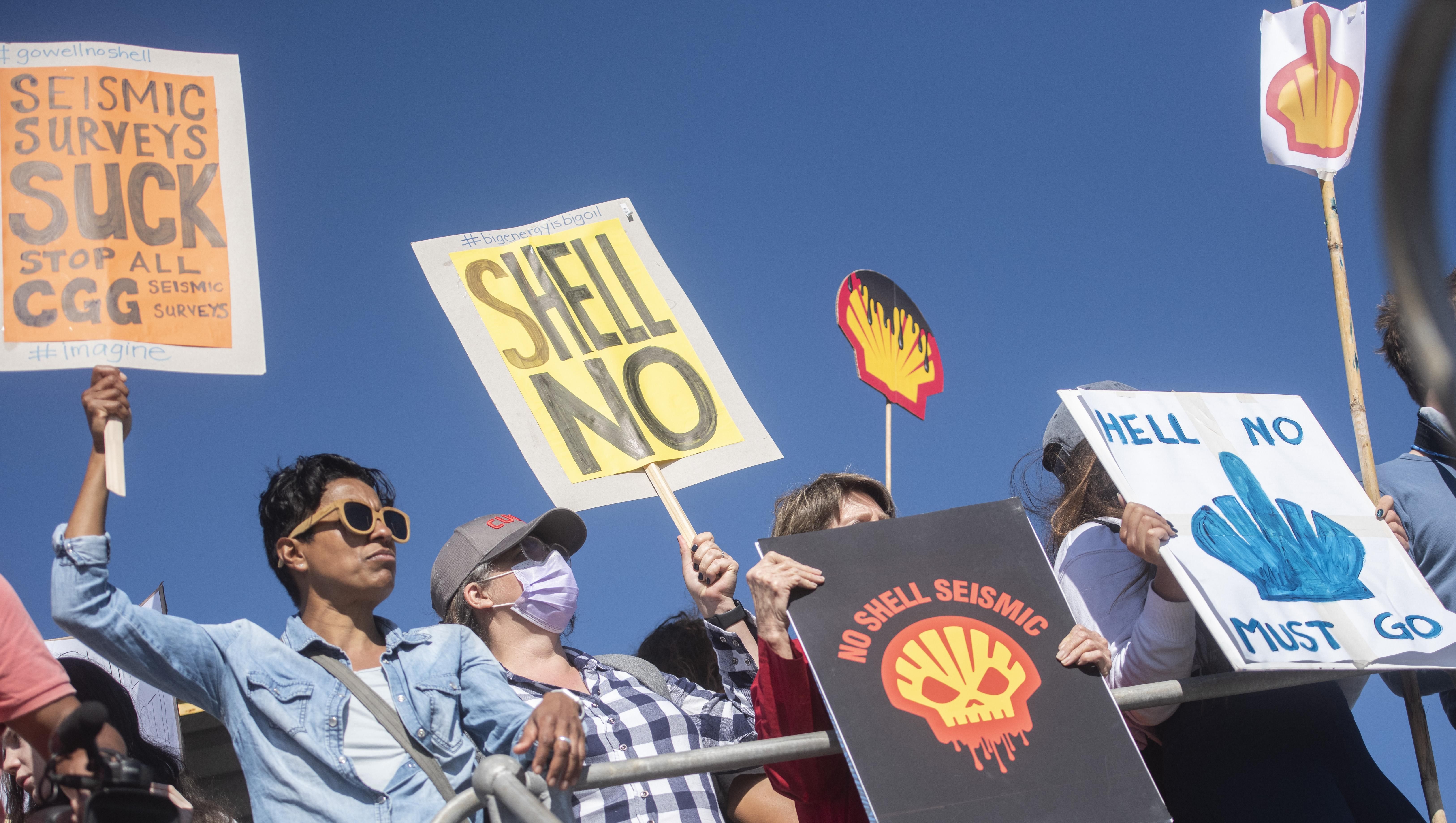By putting its money toward agroecology research and farmer support, the Gates Foundation could make a huge contribution to sustainability and smallholder farmers' well-being.

Bill Gates, billionaire, speaks onstage at 2019 New York Times Dealbook on November 06, 2019 in New York City. (Photo: Michael Cohen/Getty Images/The New York Times)
COMMONDREAMS
December 5, 2021
The Bill and Melinda Gates Foundation announced a $922 million investment to address global malnutrition and hunger at the controversial United Nations Food Systems Summit this September.
We commend the foundation for investing in nutrition; unfortunately, its focus on food fortification, technical assistance and research into new “high-impact” innovations misses the mark on the root causes of hunger and malnutrition — and the needed solutions.
As articles announcing the foundation’s commitment have noted, rates of hunger increased during the COVID-19 pandemic. As the Seattle Times reported, “Economic downturns in 2020, exacerbated by the pandemic, led to increases in world hunger as more people found it difficult to afford healthful diets ... [T]he number of undernourished individuals was more than five times greater in 2020 than it was at any point within the last two decades.”
Let’s read that again — economic downturns were responsible for increased hunger, because people could not afford healthy diets. The issue is not that poor people simply don’t know about maternal nutrition, nor that their flour isn’t “enriched” with vitamins and minerals, but that they cannot afford to purchase the nutritious foods that they and their families need. Critical nutrient deficiencies like vitamin A deficiency and anemia are highly correlated with poverty and food insecurity, and they increase amid economic crises and recessions.
Malnutrition and food insecurity are caused by how we have set up our societies, prioritizing productivity, profits and commodities over ensuring universal access to healthy, nutritious and culturally appropriate food that is produced without negative impacts on the biosphere. They are symptoms of the racialized, gendered and classed structural violence that produces poverty and inequality. This structural violence explains why more than 700 million people still experience hunger, even as the world produces enough food to feed 10 billion (3 billion more than currently live on Earth).
However, the Gates Foundation’s investments tackle malnutrition and food insecurity as though they were technical, production-related problems. Since 2006, the foundation has been one of the leading donors of the Alliance for a Green Revolution in Africa (AGRA), which promised to increase farmer incomes and reduce hunger in African countries. AGRA’s programs and the Gates Foundation’s other agricultural development programs in Africa have prioritized interventions designed to increase crop yields, like chemical inputs and new seed varieties. Leaving aside the question of whether yields have indeed significantly increased (the available evidence suggests that they have not ), these programs have failed to reduce hunger or improve nutrition.
This is not to suggest that there is no place for fortification with essential vitamins and minerals, or for much-needed support for maternal nutrition. But the technical solutions funded by the Gates Foundation and other philanthropic and development institutions will never effectively address the structural reasons why many people cannot obtain sufficient and/or nutritious food.
So what should the Gates Foundation do instead?
In the short-term of the fallout from COVID-19, the foundation and other donors should get money directly into the hands of those who need it. Direct cash transfers are extremely effective at reducing hunger, enabling families to provide for basic needs, and allowing people to cultivate longer-term economic opportunities.
In the medium term, civil society movements in Africa have repeatedly asked the Gates Foundation to provide more support for agroecology, which is an evidence-based and widely accessible agricultural model based on using ecological processes and resources without damaging them.
Agroecology is severely underfunded, in spite of being one of the best tools for achieving the United Nations’ Sustainable Development Goals. By putting its money toward agroecology research and farmer support, the Gates Foundation could make a huge contribution to sustainability and smallholder farmers’ well-being.
In the long-term, solving hunger and malnutrition requires dismantling the systems that commodify food and perpetuate processes of exploitation — of both humans and nature. It’s possible that Bill Gates could play a powerful role in advocating for such a process — but we haven’t seen evidence of it yet.
The Bill and Melinda Gates Foundation announced a $922 million investment to address global malnutrition and hunger at the controversial United Nations Food Systems Summit this September.
We commend the foundation for investing in nutrition; unfortunately, its focus on food fortification, technical assistance and research into new “high-impact” innovations misses the mark on the root causes of hunger and malnutrition — and the needed solutions.
As articles announcing the foundation’s commitment have noted, rates of hunger increased during the COVID-19 pandemic. As the Seattle Times reported, “Economic downturns in 2020, exacerbated by the pandemic, led to increases in world hunger as more people found it difficult to afford healthful diets ... [T]he number of undernourished individuals was more than five times greater in 2020 than it was at any point within the last two decades.”
Let’s read that again — economic downturns were responsible for increased hunger, because people could not afford healthy diets. The issue is not that poor people simply don’t know about maternal nutrition, nor that their flour isn’t “enriched” with vitamins and minerals, but that they cannot afford to purchase the nutritious foods that they and their families need. Critical nutrient deficiencies like vitamin A deficiency and anemia are highly correlated with poverty and food insecurity, and they increase amid economic crises and recessions.
Malnutrition and food insecurity are caused by how we have set up our societies, prioritizing productivity, profits and commodities over ensuring universal access to healthy, nutritious and culturally appropriate food that is produced without negative impacts on the biosphere. They are symptoms of the racialized, gendered and classed structural violence that produces poverty and inequality. This structural violence explains why more than 700 million people still experience hunger, even as the world produces enough food to feed 10 billion (3 billion more than currently live on Earth).
However, the Gates Foundation’s investments tackle malnutrition and food insecurity as though they were technical, production-related problems. Since 2006, the foundation has been one of the leading donors of the Alliance for a Green Revolution in Africa (AGRA), which promised to increase farmer incomes and reduce hunger in African countries. AGRA’s programs and the Gates Foundation’s other agricultural development programs in Africa have prioritized interventions designed to increase crop yields, like chemical inputs and new seed varieties. Leaving aside the question of whether yields have indeed significantly increased (the available evidence suggests that they have not ), these programs have failed to reduce hunger or improve nutrition.
This is not to suggest that there is no place for fortification with essential vitamins and minerals, or for much-needed support for maternal nutrition. But the technical solutions funded by the Gates Foundation and other philanthropic and development institutions will never effectively address the structural reasons why many people cannot obtain sufficient and/or nutritious food.
So what should the Gates Foundation do instead?
In the short-term of the fallout from COVID-19, the foundation and other donors should get money directly into the hands of those who need it. Direct cash transfers are extremely effective at reducing hunger, enabling families to provide for basic needs, and allowing people to cultivate longer-term economic opportunities.
In the medium term, civil society movements in Africa have repeatedly asked the Gates Foundation to provide more support for agroecology, which is an evidence-based and widely accessible agricultural model based on using ecological processes and resources without damaging them.
Agroecology is severely underfunded, in spite of being one of the best tools for achieving the United Nations’ Sustainable Development Goals. By putting its money toward agroecology research and farmer support, the Gates Foundation could make a huge contribution to sustainability and smallholder farmers’ well-being.
In the long-term, solving hunger and malnutrition requires dismantling the systems that commodify food and perpetuate processes of exploitation — of both humans and nature. It’s possible that Bill Gates could play a powerful role in advocating for such a process — but we haven’t seen evidence of it yet.
Our work is licensed under Creative Commons (CC BY-NC-ND 3.0). Feel free to republish and share widely.

MILLION BELAY
Million Belay is the coordinator of the Alliance for Food Sovereignty in Africa.

HEATHER DAY
Heather Day is co-founder and Executive Director of Community Alliance for Global Justice. In 1999 she helped organize the WTO protests while working with CISPES, Committee in Solidarity with the People of El Salvador, and hosted an event, "Voices from the Global South", featuring organizers from multiple continents. She cut her teeth as an organizer with the NAFTA-GATT Justice Committee after graduating from The Evergreen State College. She holds a Masters in Geography from the University of Washington; her research focused on how the Free Trade Areas of the Americas was defeated by activists collaborating transnationally.

STEVE GLOYD
Steve Gloyd is a physician who has been at the University of Washington since 1986. He has worked for over 40 years in Africa, Latin America, Asia, and the United States.












